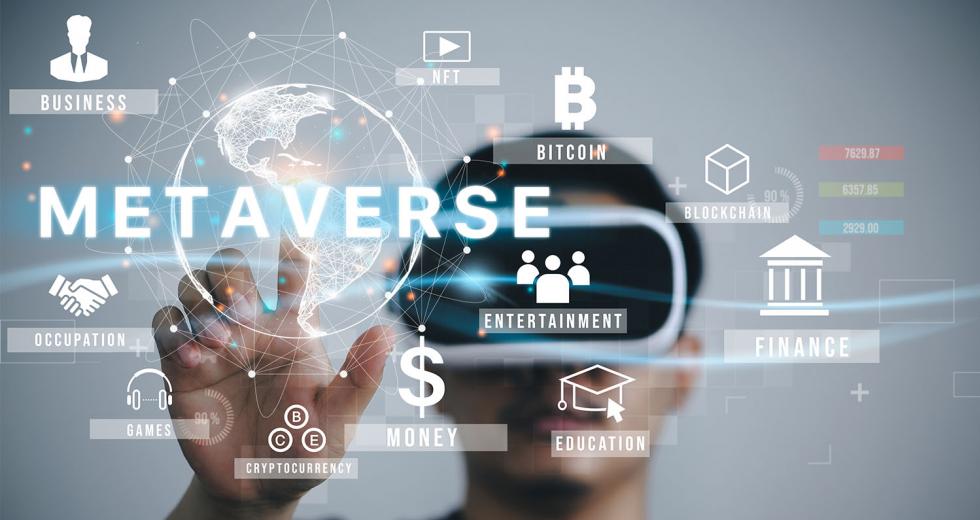Over the past two years, the pace of innovation and change has happened faster than what we’ve seen in human history. Now, businesses are racing toward a future very different from the one they were designed to operate in, as technologies are reshaping human experiences.
We’ve already seen firsthand the positive implications of technologies like augmented reality/virtual reality (AR/VR) on businesses and the human experience. For example, we developed a virtual reality training tool for highway patrol to give cadets an opportunity to digitally experience what it would be like before they were deployed on the streets. Through a video game-style format, cadets can experience real-life scenarios of traffic stops on the highway, the dangers they may encounter and be more prepared for their first day on the job. In addition to being prepared for the job, cadets can also feel more confident in their skills and capabilities.
Looking ahead, we can expect that the lines between physical and digital will continue to blur. New research from Accenture’s Technology Vision 2022 found that by 2030, the lives of human beings will stretch across several worlds, known as the metaverse. We will exist not just in the reality we all know, but also across numerous digital, virtual, and “virt-real” — worlds that are a combination of physical and digital worlds. Think about a team that is geographically distributed, looking to solve a problem for a client. Team members can work in smaller groups with colleagues in a physical office space, and then come together to collaborate, share ideas and collectively find a solution as a global team in a virtual setting.
Accenture currently operates its own metaverse, the Nth floor, where the company’s people participate in new-hire orientation and immersive learning or meet and socialize as teams. Through this experience, even before many new hires have had a chance to connect in person, they’ve been able to build relationships through this curated digital experience. We expect by August 2022, 150,000 or more new hires at Accenture will work in the metaverse on their first day.
Similarly, business leaders who are shaping the workforce for the future are starting to see the possibilities as we explore new ways to interact, engage and co-create using these existing platforms. It provides us with an opportunity to shape culture, deepen connections within the workforce and give more access to leadership. While we’re still in the early stages of fully understanding the implications that the metaverse can have on a business, many efforts are already underway to reimagine the future of technology, as the metaverse applies across all segments and aspects of business.
We’re seeing a lot of adoption in the consumer space, with global brands like Nike leading the way. Nike recently announced its NIKELAND on Roblox showroom. NIKELAND has buildings and fields inspired by the company’s real-world headquarters, arenas where visitors can play games and a digital showroom where they can outfit avatars with Nike products. The full experience crosses into the physical world too: By using the accelerometers on their phones, visitors can translate activity in the physical world into longer jumps or faster running speeds in NIKELAND games. Through this unique experience, Nike is redefining how consumers are engaging with its brand and transforming the way its loyal consumers shop for products.
As we move into this new multidimensional reality, we also need to ensure we are innovating with equity and inclusivity in mind. From these new experiences, we should seek out new opportunities to make a positive impact in our communities, and help those individuals who are underserved and underrepresented. Think about the impact we can make if a local community organization can source volunteers to lead a career workshop session in a digital space, tapping into people from across the country to help train and prep individuals for real-life interviews. At the same time, the organization can also activate local volunteers for an in-person drive to collect clothes and other items they may need for an interview. It’s a win-win.
In another scenario, organizations can take advantage of the metaverse to create more equal opportunities in the workplace. A team member with a physical disability may not have been able to join in-person meetings due to limited accessibility in the physical spaces. Now, these meetings can take place digitally, where all team members can participate and join together from the comfort of their own homes.
The possibilities are limitless. These are just a few examples of how we can explore the metaverse to empower our people, grow the capabilities within our organizations and make an impact in our communities in new, innovative ways. As leaders, we also need to think about how it impacts the way we operate our business differently, ensuring that the workforce is ready to embrace change and adopt a future-forward mindset. And while we have to move fast, it’s imperative that we do it in a manner that is authentic and with purpose.
Recommended For You
Sponsored

Redefining the Workforce of the Future Through Apprenticeships
Accenture
The Sacramento region continues to be a hot market for talent and workforce development.




